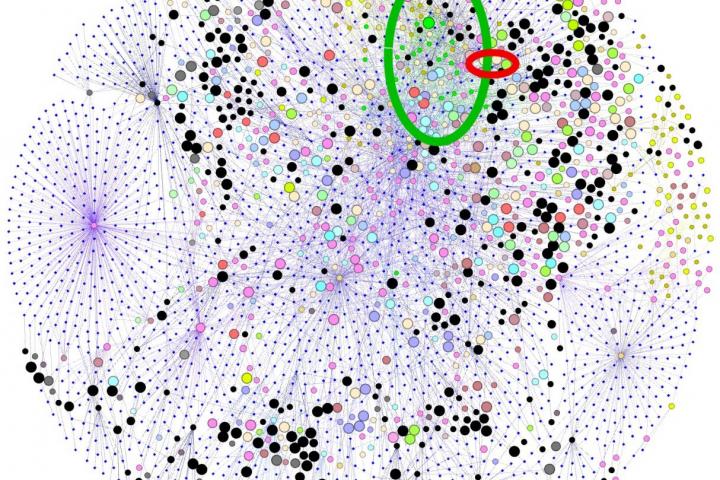
Ancient Egyptian civilization has developed in a nonlinear manner based on the theory of intermittent equilibrium. This is confirmed by archaeological research by Czech Egyptologists. Major changes in development of society have taken place, as in the so-called Velvet Revolution or the Arab Spring. To shade light on the detailed mechanism of these processes, a large and world-unique database began to emerge. At present, there are about five thousand officials, their titles and family relationships. First, however, it was necessary to unify the data collected from disparate sources. The technique of artificial intelligence and analysis of complex networks was used to process records. Reconstruction of families and family relations, nepotism and the real influence of so-called interest groups in the society served to work with uncertainty and logic. The analysis of the inheritance of offices and functions is based on fairly simple but effective networking techniques and the so-called data mining method. In addition, various visualization options for family trees have been implemented. The application of the theory of hidden Markov models revealed details of the country's governance transformation during the 5th Dynasty. Theory of information has helped to detect strategic titles and powerful dignitaries who have gained considerable influence.
Scientists have had to overcome not only a lot of communication barriers, but also different approaches to scientific work and publishing.
A chapter on the research is now being written the newly prepared book, which will bring readers closer to the application of basic principles of cybernetics in an unusual domain, such as egyptology.